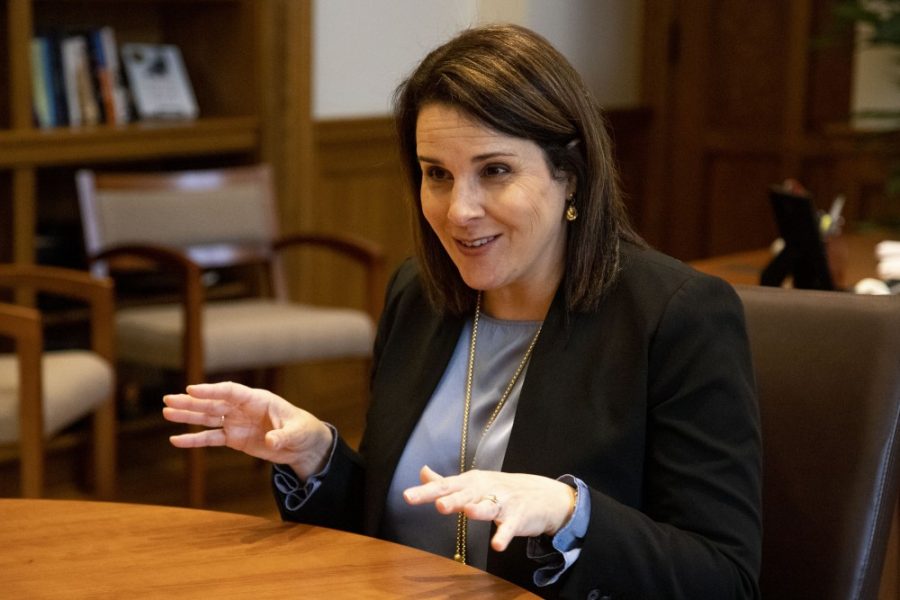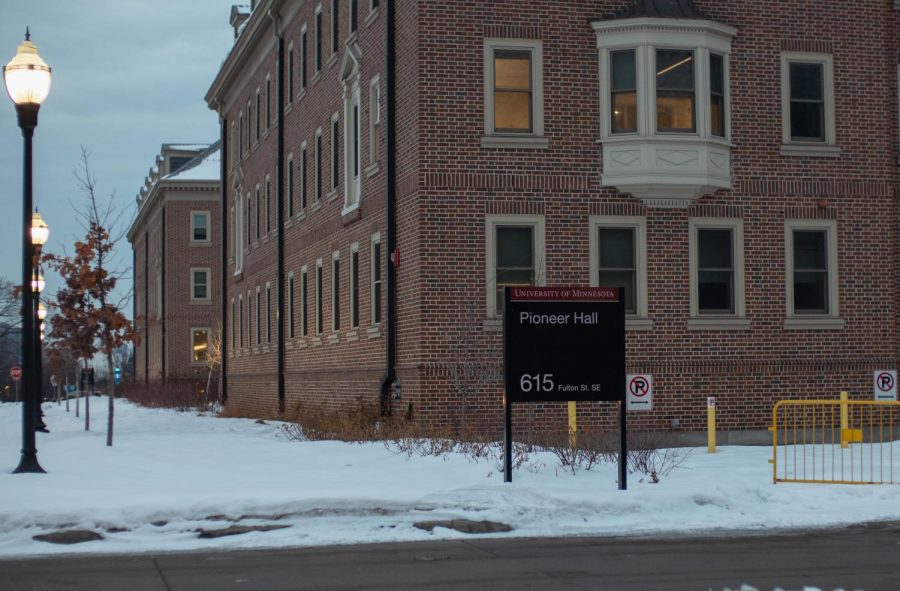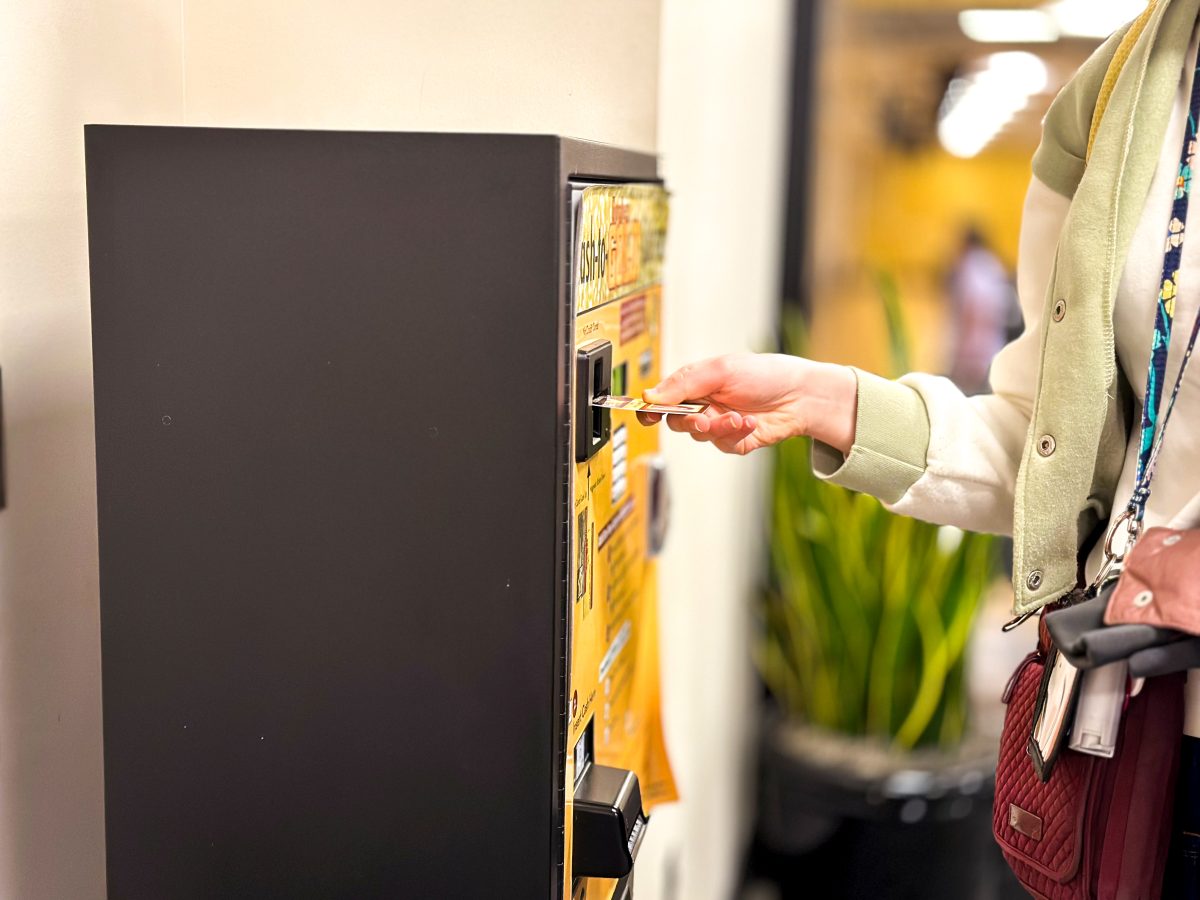In a virtual interview with the Minnesota Daily, University of Minnesota President Joan Gabel discussed COVID-19 testing on campus, the safety review of the university’s police department and employment opportunities at the University.
Many universities and colleges around the country have implemented mandatory testing programs or other testing initiatives. What will make the MTest program effective in defending our community and campus against the spread of COVID-19?
One of the lessons we learned from our peers was that really robust testing programs are no substitute for six feet of social distance, masks and avoiding large gatherings [and] washing your hands, the mantra that we’ve all been hearing these last few months. The campuses that had frequent testing have also had surges … But the better use of our resources was to really engage in the practices that prevent or mitigate spread, and that’s the behavioral practices.
What would the University’s response be if a University student, staff or faculty member dies from COVID-19? Who takes responsibility and/or liability for that?
That would be a tragedy. Obviously, we would be devastated, but COVID is everywhere right now and we are in a global pandemic. We’ve maximized choice and flexibility so that if you don’t want to be on campus, then you can [choose not to be]; as a student set your schedule, as an employee set your work relationship, we haven’t been able to do that 100%, but we’ve been able to do that a lot. Maximizing safety, considering that the virus is everywhere, and maximizing choice, we think puts us in the best possible position to look our community in the eye and say, ‘This is the intersection where you can make choices about your own situation and plan accordingly.’
Several weeks ago, a COVID-19 acknowledgement appeared in the MyU portal of all students at the University of Minnesota asking them to acknowledge the risk of COVID-19 on campus. What did the decision making process look like within the University’s administration when pushing out this acknowledgment?
The decision making process was that this was the way we could put information out without, we thought, making it appear as if we were forcing some sort of legal waiver of liability. It came to our attention that it appeared to be a waiver of liability. That was a mistake that we didn’t anticipate that reaction and that’s why the follow-up communication came through.
We thought this was a crisp way to get some of that information out. We should have been clear that it was an information push only, and hopefully the follow up communication resolved that.
Under the Maroon and Gold Sunrise Plan announced in early September, you explained that students in University housing would follow required “back home times” for the first several weeks of the semester. The Maroon and Gold Sunrise Plan also states that students who do not abide by these requirements will be subject to disciplinary action. What kinds of disciplinary action can students expect to see?
In the event that somebody decides to behave otherwise, the decision point is whether the behavior was inside the dorm or outside the dorm. Within the dorm, it’s governed under Housing and Residential Life standards and that is a violation of those standards and would be overseen by the staff of Housing and Residential Life. Outside the dorm, is the Office for Community Standards and would be overseen by that staff. Our intention here is not to create something that feels like a weaponization or criminalization.
Has the administration decided on a list of actions that would be taken, if within the dorm, someone was not following the requirements?
We thought about and decided not to create a separate set of violations or standards for violations of the Maroon and Gold Sunrise Plan. Instead, it would follow the same criteria that any violation of the rules of Housing would follow with the same potential outcomes. So this is part of how we expect people to behave and an absence of meeting that expectation would follow the exact same standards that any disciplinary action has.
What updates can you provide on the review of the University of Minnesota Police Department and the overall safety of our campus, which was undertaken by Dr. Alexander in late August?
Now he’s starting his listening and we’re in the process of scheduling his meetings with different faculty, staff, students and community constituencies. And so that will be the long part of the process for him to listen and learn, and then extrapolate from those different perspectives, the beginnings of some recommendations, and he’s at the front end of the listening portion of his engagement with us.
With the majority of classes relying on online instruction in some capacity this fall, what training is the University currently making mandatory for faculty to ensure they are meeting and exceeding best practices for online learning? How are faculty being monitored and given feedback in this regard?
We don’t have mandatory training, we have voluntary training… We’ve had literally thousands of faculty go through thousands of different training workshops… I think that they know that if we don’t meet your expectations, that’s a failure. But how they obtain that training is pretty individualized depending on how or what they teach. And we’re watching each student’s evaluations very closely and your feedback very closely to make sure that we’re keeping things at the level that you have every right to expect.
What plans does the University have in place to ensure no decline in paid and unpaid internships offered to students as a result of COVID-19? How is the University cultivating and maintaining relationships with employers in the area and across the country?
We did see a real dip last summer, because of the timing of the pandemic and a lot of students losing their internships, or at least their first choice internship … But the trend line that we’re seeing right now that we’re cautiously optimistic about is that by next summer … things will be back on track because the job market here for the educated workforce that we graduate each year is strong.
After the pandemic is over, what three things should students, faculty and staff, parents and community members takeaway as “what the U did right” through it all?
As a research university we stepped in, in the early phase during the ventilator shortage, testing vaccines, testing mitigating treatments and providing really deep clinical care to the community.
Universities are notoriously rigid and we had to be nimble and flexible in ways that were really unusual for us. And I think we sat around our Zoom table and said, ‘We’ve got to continue to educate and figure out how to do it quickly.’ I think the idea of meeting the challenge, so that education continues, I think we got that right.
This pandemic has made all of us have to say, ‘Okay, that might have been right yesterday, but it’s no longer right today.’ And we have to just be vulnerable to that reality and make the best informed decisions that the information we have available allows us to make, and own when we’ve been wrong or when we’ve needed to evolve.
What was one wrong decision you or the University’s administration supported during the pandemic and what did you learn from it?
Well, I would think the obvious one is the housing and dining refunds. There were a few, but that one was the one that I think was the most palpable for the student body. Whether you were living in housing or taking advantage of a meal plan or not, is that we made the original decision around the refund based on what other schools at the time were doing… But what we didn’t realize at the time and have learned … is that this pandemic hits people differently. It creates a different frame of what it feels like for people to do what should be done, what should be done is changing in light of the pandemic and so, that was advocated for effectively by the student population and parents and some of our faculty and staff too, so we changed and issued the rest [of the refund].
This interview has been slightly edited for length, grammar and clarity.


























